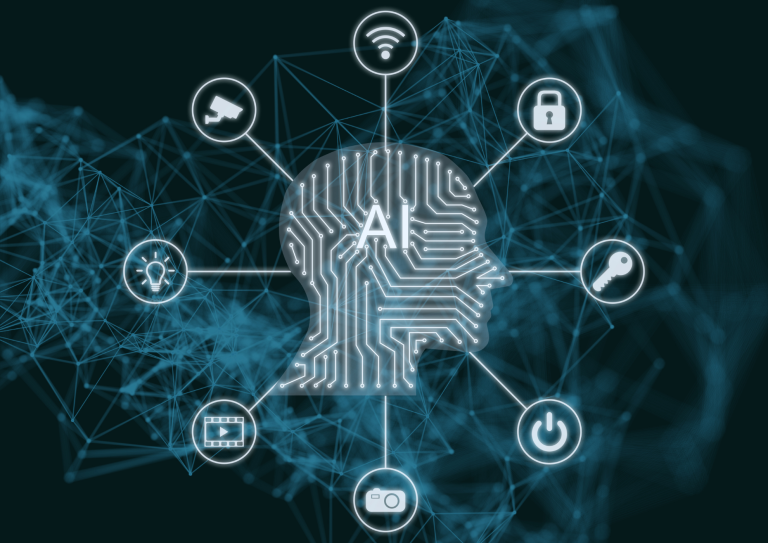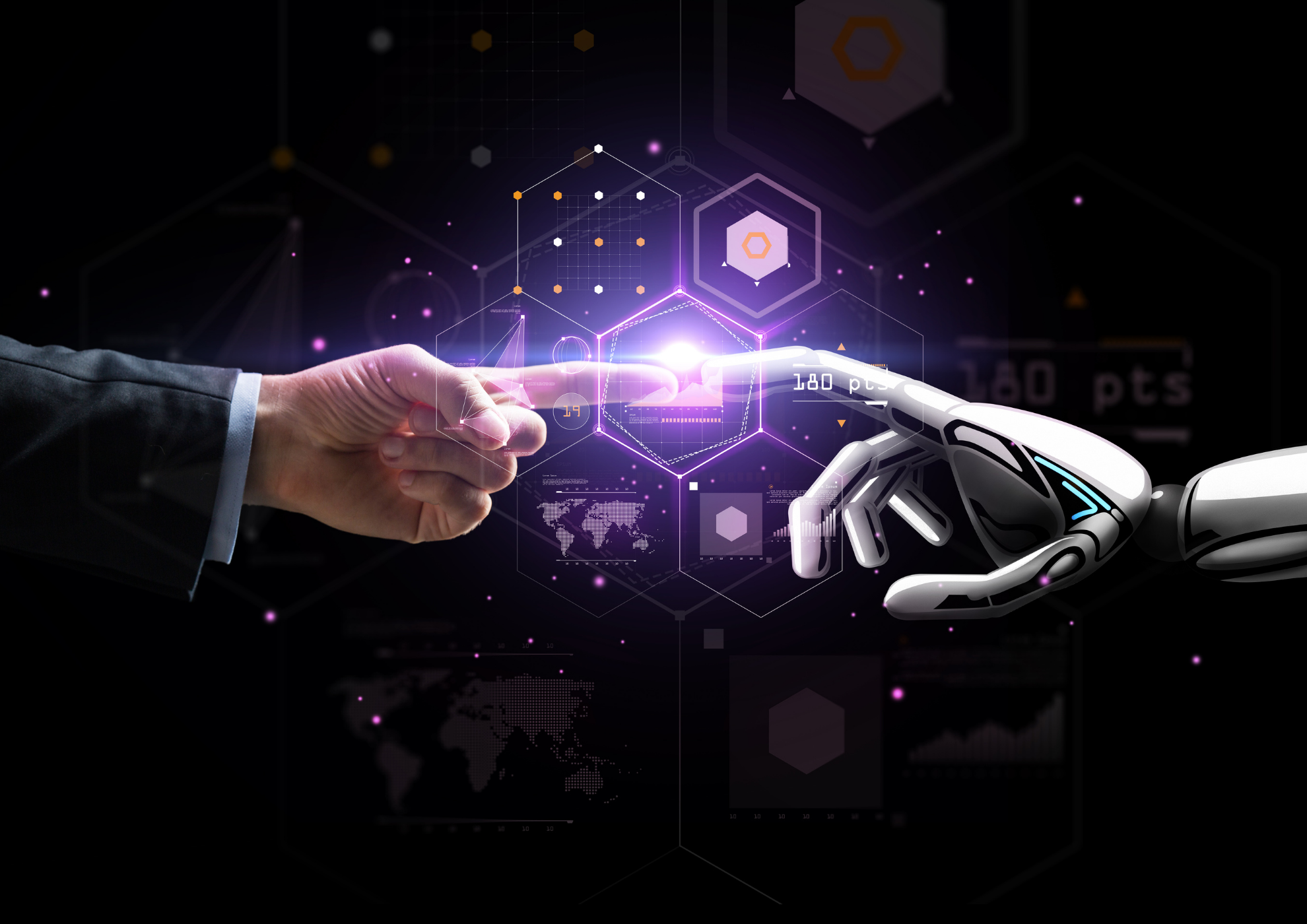Artificial intelligence (AI) has rapidly transformed various industries, and the insurance sector is no exception. With advancements in technology, AI has made significant strides in automating various processes, raising the question of whether it will eventually replace the need for human life insurance agents. In this article, we will explore the role of AI in the insurance industry and examine the advantages and potential drawbacks of AI-powered life insurance processes. We will also delve into the importance of human agents in the life insurance process and discuss the need to find a balance between AI and human expertise.
Finding the right balance between AI and human expertise is essential to ensure that customers receive the best possible service and support throughout their life insurance journey.
As AI continues to evolve, it has become increasingly proficient in tasks that were traditionally performed by humans. In the insurance industry, AI-powered systems can now handle data analysis, risk assessment, and even customer service interactions. This automation brings numerous advantages, including improved efficiency, faster claim processing, and enhanced accuracy. However, despite these benefits, there are concerns that relying solely on AI in the life insurance sector may overlook the crucial aspects of empathy, personal connection, and complex decision-making that human agents bring to the table.
Finding the right balance between A.I. and human expertise is essential
- The Role of AI in the Insurance Industry
- Potential Drawbacks of AI in the Life Insurance Sector
- Advantages of AI-Powered Life Insurance Processes
- The Importance of Human Agents in the Life Insurance Process
- Finding a Balance: Combining AI and Human Expertise in Life Insurance

The Role of AI in the Insurance Industry
AI is revolutionizing the insurance industry by streamlining processes and enhancing customer experiences. With the advancements in technology, AI-powered systems are now able to analyze vast amounts of data and make accurate predictions about insurance risks. This enables insurance companies to automate tasks that were previously time-consuming and labor-intensive, such as underwriting and claims processing. By leveraging AI, insurance companies can significantly reduce the time it takes to assess an applicant’s risk profile, determine appropriate coverage, and process claims, leading to faster and more efficient service for customers.
Moreover, AI is also improving customer experiences by providing personalized recommendations and support. AI-powered chatbots can interact with customers in real-time, answering their queries and providing them with relevant information about insurance policies. These chatbots are equipped with natural language processing capabilities, allowing them to understand and respond to customer inquiries with accuracy and efficiency. By offering instant support and guidance, AI-powered chatbots enhance customer satisfaction and reduce the need for human intervention in routine customer interactions. Overall, AI is revolutionizing the insurance industry by automating processes, improving efficiency, and enhancing customer experiences. While AI may replace certain tasks performed by human life insurance agents, it is unlikely to completely replace the need for human agents. The complex nature of life insurance requires human empathy, understanding, and expertise to guide individuals through important decisions regarding their financial security. AI can support and enhance the work of human agents, providing them with valuable insights and tools to better serve their clients. In conclusion, AI is transforming the insurance industry, but it is more likely to complement and augment the role of human life insurance agents rather than replace them entirely.
Advantages of AI-Powered Life Insurance Processes
Imagine having life insurance processes that are powered by cutting-edge technology, making them faster, more efficient, and incredibly convenient for you.

This is the reality with AI-powered life insurance processes. One of the key advantages of using AI in life insurance is the ability to automate time-consuming tasks. AI algorithms can process large amounts of data quickly and accurately, allowing for faster underwriting and claims processing. This means that policyholders can receive quotes and approvals in a matter of minutes, rather than days or weeks. Additionally, AI can analyze and evaluate risk factors more effectively, leading to more accurate premium calculations and personalized policies tailored to individual needs and circumstances.
Another advantage of AI-powered life insurance processes is the enhanced customer experience. AI chatbots and virtual assistants can provide instant support and guidance to policyholders, answering their queries and concerns in real-time. These virtual agents can also offer personalized recommendations based on the policyholder’s profile and preferences, helping them make informed decisions. Furthermore, AI algorithms can continuously monitor policyholders’ data and proactively identify potential risks or changes in circumstances that may require adjustments to the policy. This proactive approach not only ensures that policyholders are adequately protected but also helps to prevent potential issues and mitigate losses. Overall, AI-powered life insurance processes offer significant advantages in terms of speed, efficiency, accuracy, and customer satisfaction, making them a valuable tool in the insurance industry.
Potential Drawbacks of AI in the Life Insurance Sector

To fully understand the potential drawbacks of AI in the life insurance sector, you need to consider the limitations that may arise from relying solely on technology.
While AI-powered processes offer numerous advantages, such as increased efficiency and accuracy, there are certain aspects where human agents still play a crucial role. One of the main concerns is the lack of human empathy and emotional intelligence that AI systems possess. Life insurance is a sensitive and personal matter, often involving discussions about mortality and financial planning. Human agents are trained to provide emotional support and understanding to clients during these conversations, which can be difficult for AI systems to replicate.
Another drawback of relying solely on AI in the life insurance sector is the potential for bias and discrimination. AI algorithms are developed based on existing data, and if this data is biased, it can lead to unfair treatment of certain individuals or groups. For example, if an AI system is trained on historical data that shows a bias against individuals with pre-existing medical conditions, it may result in higher premiums or denial of coverage for such individuals. Human agents, on the other hand, have the ability to assess each client’s unique circumstances and make subjective judgments that go beyond the limitations of data-driven algorithms.
While AI-powered processes offer numerous advantages in the life insurance sector, it is important to recognize the potential drawbacks that arise from relying solely on technology. The lack of human empathy and emotional intelligence, as well as the potential for bias and discrimination, are significant limitations that AI systems currently face. Therefore, a combination of AI and human agents may be the optimal approach to ensure a well-rounded and fair life insurance experience for clients.

The Importance of Human Agents in the Life Insurance Process
You can’t underestimate the value of having a human agent by your side throughout the emotionally-charged process of securing life insurance. While artificial intelligence (AI) may offer convenience and efficiency, it lacks the personal touch and understanding that a human agent brings to the table. Life insurance is a deeply personal decision, often involving discussions about family, financial security, and future planning. A human agent can provide empathy, compassion, and guidance during these sensitive conversations, helping clients navigate through the complexities and make well-informed decisions.
Human agents also possess the ability to adapt and tailor their approach based on individual circumstances. They can take into account a client’s unique needs, preferences, and budget constraints. Unlike AI, human agents can offer personalized advice and recommendations, considering various factors such as health conditions, lifestyle choices, and long-term goals. This level of customization ensures that clients receive the most suitable coverage for their specific situation, providing them with peace of mind and financial protection.
Moreover, human agents are not limited to just selling policies; they can offer ongoing support and assistance throughout the life insurance journey. They can help clients understand policy terms and conditions, assist in policy reviews and updates, and even provide guidance during the claims process. The expertise and experience of a human agent can be invaluable in navigating the complexities of the life insurance industry, making sure clients have a trusted partner to rely on.
While AI may bring advancements and efficiencies to the life insurance sector, the importance of human agents cannot be overstated. Their ability to provide empathy, personalization, and ongoing support makes them an essential component of the life insurance process. As clients make significant decisions regarding their financial future, the presence of a human agent can provide the necessary guidance and understanding required for a smooth and satisfactory experience.
Finding a Balance: Combining AI and Human Expertise in Life Insurance
Striking a harmonious balance between cutting-edge technology and the expertise of compassionate professionals is key in revolutionizing the life insurance industry.

While artificial intelligence (AI) has the potential to streamline and automate various aspects of the life insurance process, it cannot fully replace the need for human agents. AI can certainly enhance efficiency by analyzing vast amounts of data and providing personalized recommendations, but it lacks the human touch that is crucial in understanding and empathizing with the unique needs and concerns of individuals seeking life insurance.
Human agents bring a level of emotional intelligence and interpersonal skills that AI simply cannot replicate. They can establish rapport and trust with clients, helping them navigate complex insurance policies and making them feel heard and valued. Additionally, human agents can provide valuable guidance and support during difficult times, such as when a loved one passes away and a claim needs to be filed. While AI can assist in expediting certain processes, the presence of a human agent ensures that clients have a knowledgeable and empathetic professional to turn to for personalized advice and assistance. By combining the efficiency of AI with the expertise and compassion of human agents, the life insurance industry can offer a more comprehensive and satisfying experience for policyholders.
WILL A.I. REPLACE THE NEED FOR HUMAN LIFE INSURANCE AGENTS?
FAQ
AI technology has the potential to streamline processes and improve efficiency in the life insurance industry. This could lead to cost savings for policyholders, but the impact on overall costs will depend on various factors, such as the extent of AI implementation and the specific insurance provider.
AI has the potential to accurately assess the emotional and psychological needs of individuals when determining life insurance coverage. This can help provide customized policies that cater to individuals’ specific requirements and ensure comprehensive coverage.
Potential ethical concerns associated with using AI in the life insurance industry include issues of privacy and data security, algorithmic bias, and the potential for discrimination. Additionally, there may be concerns about accountability and transparency in decision-making processes.
AI has a significant impact on personalization and customization of life insurance policies. It enables insurers to analyze vast amounts of data, leading to tailored coverage options and premiums based on individual risk profiles.
AI technology has the potential to effectively handle complex life insurance claims and provide compassionate customer support during difficult times. Its advanced capabilities allow for efficient processing and assistance, enhancing the customer experience.
conclusion
In conclusion, while AI has the potential to revolutionize the life insurance industry, it is unlikely to completely replace the need for human life insurance agents. AI-powered systems can streamline processes, improve efficiency, and enhance customer experience. However, they cannot replicate the human touch and emotional intelligence that human agents bring to the table.
Human agents play a crucial role in understanding the unique needs and concerns of individual policyholders. They can provide personalized advice, guidance, and support, which is especially important in complex cases or during difficult times. Moreover, human agents can build trust and establish long-term relationships with clients, which is essential for the success of the life insurance industry.
Therefore, a balance between AI and human expertise is necessary to ensure the best outcomes for both insurers and policyholders. By leveraging the strengths of both AI systems and human agents, insurers can provide a seamless, efficient, and customer-centric experience. Ultimately, the future of the life insurance industry lies in the collaboration between AI and human agents, rather than the complete replacement of one with the other.

